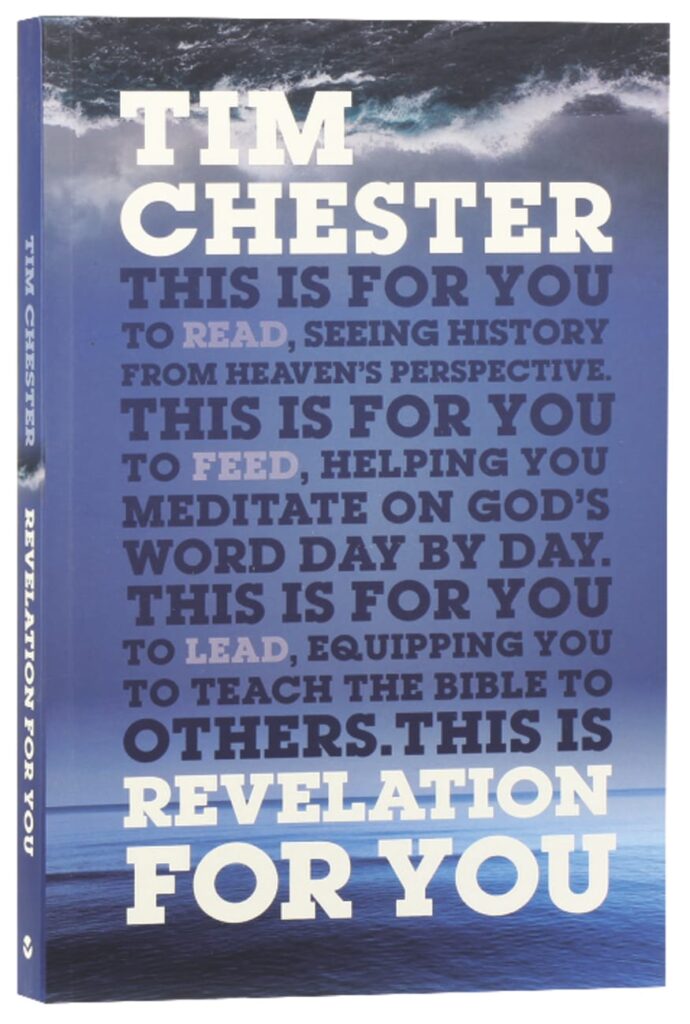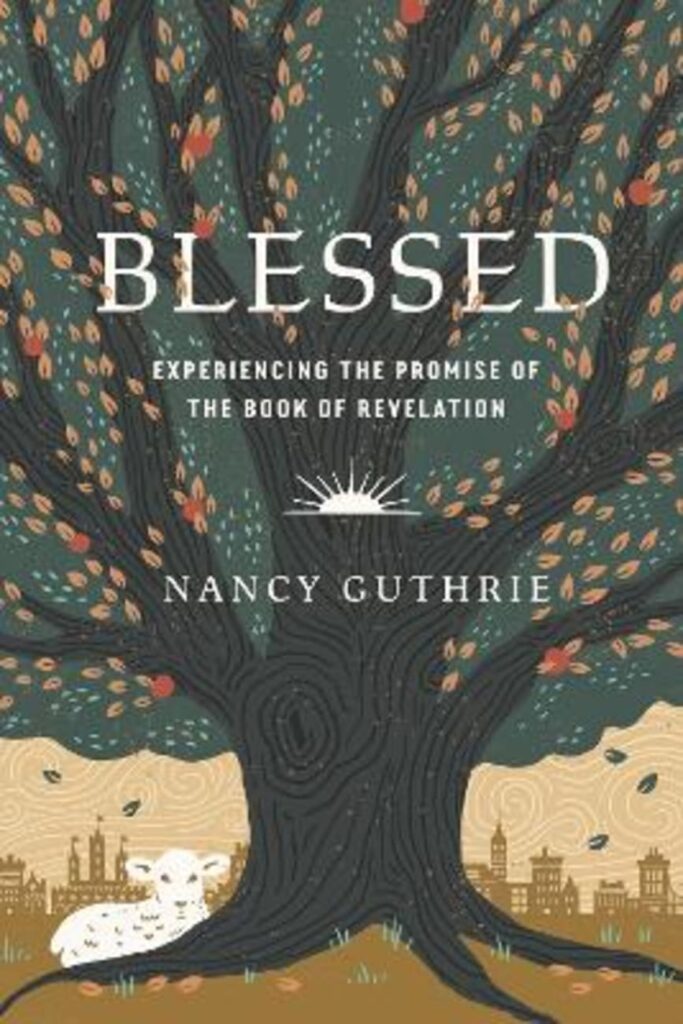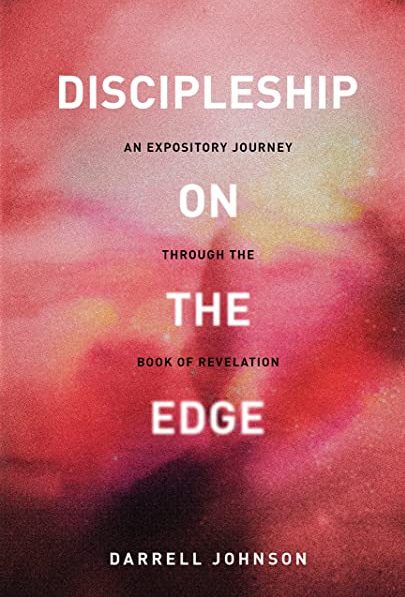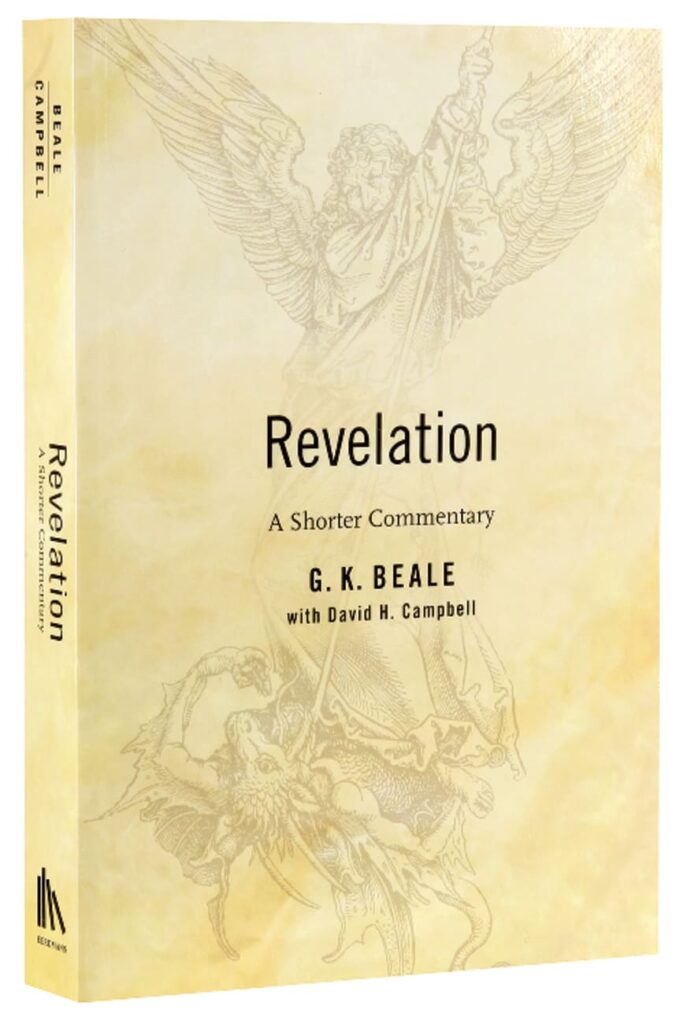INTRODUCTION
The Revelation of Jesus Christ, which is the name the book gives itself in the first line, is considered by many to be the most challenging book of the New Testament to read. It seems so foreign to us. When Paul presents a stirring and logical argument for the sovereign grace of God such as we find in Romans we may feel somewhat confident, but when John writes of seeing a dragon with seven heads and ten horns, well, it’s not quite so straightforward. For that reason and others, many avoid the Revelation.
However, in reality this book has deep truth to speak to us which will lead us to live our lives in the light of Jesus, if we read it on it’s own terms. There is a great deal which can be said about Revelation, below you’ll find some articles and recommended resources for going deeper, and of course as we walk through it we will look keenly into each passage. But for now, let’s make three observations from the first three verses of the book which will help us to get started:
The revelation of Jesus Christ, which God gave him to show to his servants the things that must soon take place. He made it known by sending his angel to his servant John, 2 who bore witness to the word of God and to the testimony of Jesus Christ, even to all that he saw. 3 Blessed is the one who reads aloud the words of this prophecy, and blessed are those who hear, and who keep what is written in it, for the time is near.
Revelation 1:1-3; ESV
- The Revelation of Jesus Christ. This is perhaps the most important fact we need to know about the Revelation. It is from Jesus, and it is about Jesus, it is “of Jesus Christ”. The word for “revelation” simply means “unveiling”. This book is intended to give us a clearer view of Jesus Christ: the one who reigns, but as a slain lamb (5:6), the one who is the King of kings, the one who will return to make all things new (chapter 21-22), the one “who loves us and has freed us from our sins by his blood” (1:5). This is key to Revelation: if it doesn’t lead us to see Jesus more clearly, to love Him and know His power and love, and to walk in a way that reflects who He is, then we are reading it wrong.
- The things that must soon take place. G. K. Beale Observes:
The roots of this verse are in Dan. 2:28–30, 45–47, where in the Greek translations of the OT the verb “revealed” appears five times, the verb “show” (“signify,” “communicate,”…) twice and the phrase “what must come to pass” three times. The key to the significance of these allusions to Daniel is that Daniel is speaking there of the kingdom of God which will come to pass in the latter days. But what Daniel explicitly states will come to pass “in the latter days” John rewords: these events will take place quickly or soon. … What Daniel expected to occur in the last days, John is announcing as imminent, or beginning to occur now. (G. K. Beale and David H. Campbell, Revelation: A Shorter Commentary)
Revelation is not primarily concerned with a far off future (although in the final 2 chapters we find a final hope beyond our wildest dreams), but with the real world which it’s original readers were living in. It also speaks to the world we live in, and to the situation of the church in every age. - Blessed. John writes that those who read, hear and do the words of this prophecy will be blessed in doing so. It is the first of seven “blessings” we find in the book (1:3, 14:13, 16:15, 19:9, 20:6, 22:7, and 22:14). We don’t need to fear this book. It does not mean us evil. Rather, we should trust the words of the Bible and expect that in reading it we will be blessed.
LISTEN

Content from Gospel Church Minlaton on the Yorke Peninsula, South Australia.
Gospel Church exists to see the good news of Jesus go out to all peoples in the country with transforming power for the glory of God and the joy of all who will come to believe.
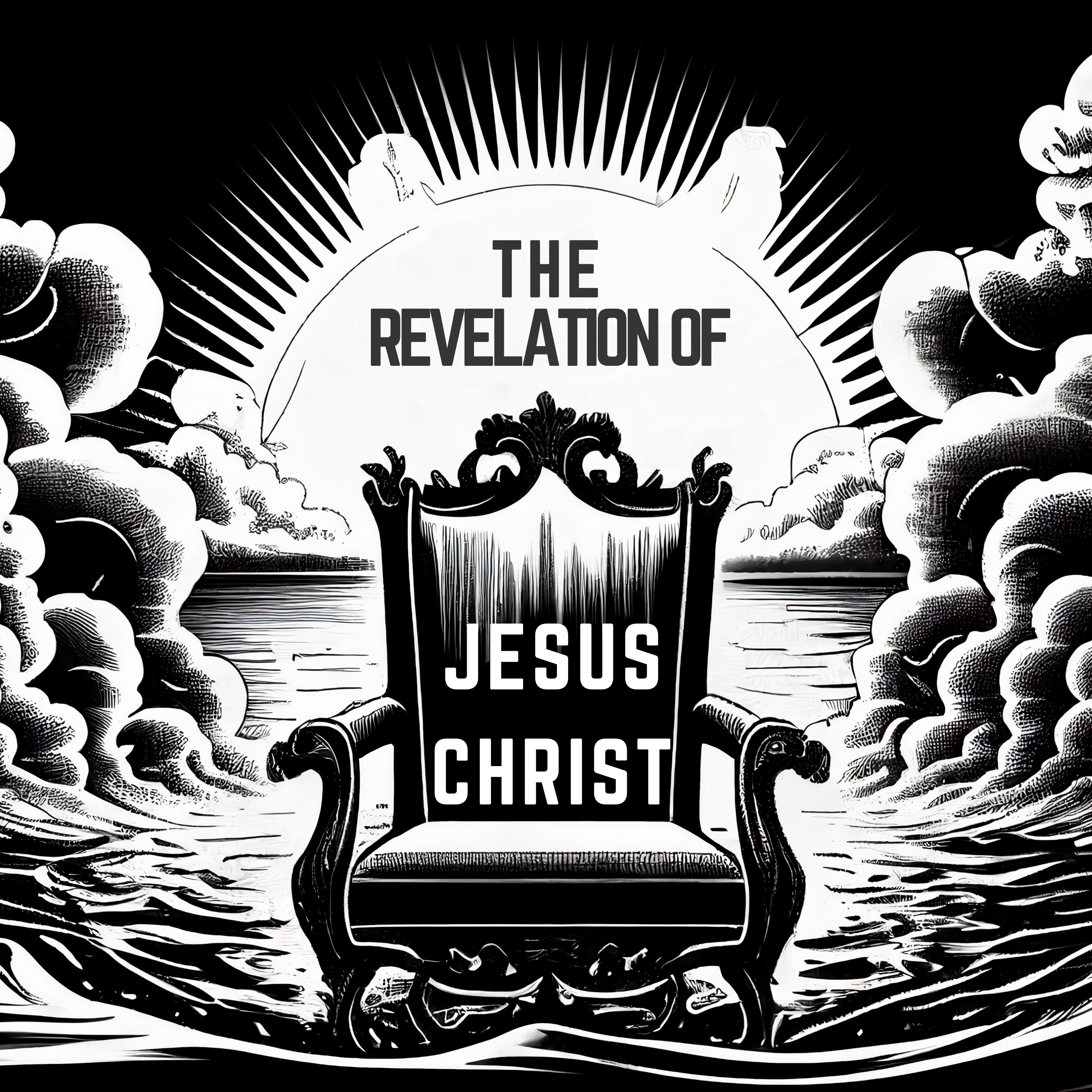
ARTICLES
GENRE OF REVELATION
The genre of a book defines how we are to read it if we want to read it well. This is important: you wouldn’t come out with the right idea if you read a political cartoon as a news story, and likewise if we read the Revelation incorrectly we will come away with wrong ideas. Revelation has 3 Genres:
Prophecy
John says that thew book is a prophecy. This doesn’t mean that it is exclusively concerned with future predictions. Some Biblical prophecy speaks about the future, some doesn’t. But what all Biblical prophecy does is speak the will of God into the lives of His people. Darrell Johnson observes that “prophecy does not so much connote “prediction” as it does “declaration”. The heart of Biblical prophecy is not, “look what is coming”, but, “thus says the Lord”.
Apocalypse
When you hear the word Apocalypse, what do you think of? For many of us, the first thought might have been “Oh no!”. However, for a first century ready the reaction would likely have been “Hooray! Give it to me!”. The word apocalypse comes from the first word of the Revelation, apocalupsis, meaning unveiling or, you guessed it, revelation. An apocalypse is an unveiling of truth which would otherwise have been inaccessible. Apocalypses have many defining characteristics, for instance in their use of significant symbolic numbers. However, perhaps the most important fact to know about apocalyptic writing is that “it seeks to set the present in light of the unseen realities of the future … and more importantly, it seeks to set the present in light of the unseen realities of the present” (Discipleship on the Edge; D Johnson, page 19).
Letter
Revelation is not a book detached from a specific moment in history. It is addressed to 7 specific churches in an area we now call Türkiye (until recently, Turkey). The book starts (Revelation 1:4) and finishes (Revelation 22:21) in the recognised form of a New Testament Epistle (letter). What that means is that all of the book must have spoken to those Christians in those churches in a way which was understandable and relevant for them. As Matt Chandler observed then: it can’t mean for us what it didn’t mean for them.
NUMBERS IN THE REVELATION
As an apocalyptic text, the Revelation hold symbolic significance. Again and again you will run into the same numbers: 4, 7, 10 and 12, and very often the multiples of these (e.g. 144,000 = 12x12x10x10x10). These numbers are symbolic pointers which tell us truths about what they are describing. For instance, in chapter 5, John sees a lamb with seven horns and seven eyes. Seven is a Biblical number of completeness, which would have been recognisable for the readers at the time. Horns are a regular Biblical image of authority and power. 7 horns = complete authority. 7 eyes = complete sight and knowing. The lamb is all powerful and all knowing.
THE MILLENNIUM
As we noted above, numbers in Revelation are typically symbolic. In Revelation 20 there are six references to one thousand years in which Jesus is to reign. This Millenium is not the main point of the book, but it is significant, and has been the cause of significant debate through the years. The millennium has been understood differently by Bible believing Christians throughout the ages, falling into roughly three positions. As long as it is held with genuine Biblical convictions, a genuine believer can hold any one of these positions in a way that seeks to be faithful to the text, and all three have been held by numerous respected Bible teachers throughout history. The positions can roughly be defined by when they expect Jesus to return:
Post Millennial: Christ will return after the millennium. The millennium will be an extended period in which Christ rules in this world through His church. The millennium may be understood as a literal 1000 years, or as a figurative 1000 years. Post millennialism is definitely still present today, but has surged in popularity in times when the church dominated and peace lasted, especially in “Christian” nations (for instance, prior to WW1).
Amillennial: Christ will return at the end of the age for the final judgement and to usher in a New Heavens and New Earth. “Amillennial” (literally meaning “no millennium”) is not strictly accurate. Amillennials usually hold that the millennium is symbolic language referring to the church age. G. K. Beale states The millennium is inaugurated during the church age as God limits Satan’s deceptive powers and as deceased Christians are vindicated by reigning in heaven. The millennium is concluded by a resurgence of Satan’s deceptive assault against the church and the final judgment (Beale, Revelation a Shorter Commentary, 420). A common objection to the Amillennial position is that the world doesn’t look much like Satan is caged in the pit now, because his people are suffering throughout the world. However, Revelation 20 emphasises that Satan is sealed up “so that he might not deceive the nations any longer” (20:3), and that therefore the reign of Christ and binding of Satan are seen in the going out of the gospel to the corners of the earth.
Pre Millennial: Jesus will return to reign for a literal 1000 years on the earth before the final judgement and the ushering in of the New Heavens and New Earth. Pre Millennialism can be further divided into historic pre-millennial (held by many Christians from early church history) and dispensational premillennial (mostly held only in the last 100-200 years). These two views are united on a literal 1000 year reign of Christ, but differ in their understanding of the role of the church and ethnic Israel in the end times, and in how they understand the ideas of rapture and tribulation.
MUSIC
The Revelation is a powerfully music book. No matter where you look, people are singing. Most commentators believe there are at least 15 songs in revelation (4:8; 4:9–11; 5:9–10; 5:12; 5:13; 7:10; 7:11–12; 11:15; 11:16–18; 12:10–12; 15:2–4; 16:5–7; 19:1–4; 19:5; 19:6–8). The reason isn’t hard to see. This is the Revelation of Jesus Christ, a powerful unveiling of our Lord, the King of kings, and everywhere in the book His glory leads His people to sing.
It only makes sense then that Revelation has inspired innumerable songs. Over the last few years we’ve put together this playlist of excellent songs inspired by the Revelation. You’re encouraged to make use of it, especially as we go through the book, to help you get both your head and your heart into the it’s truth.
Click the button to get it on spotify, or listen to the youtube playlist below.
BOOKS
There are many books written on the Revelation, but below are volumes which are heartily recommended if you want to dig deeper into this part of the Bible. These are ordered in length/depth so that you can choose an appropriate level for yourself. Books which are available in the church library are indicated.
